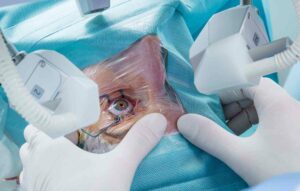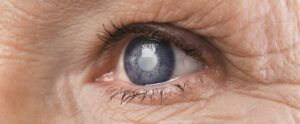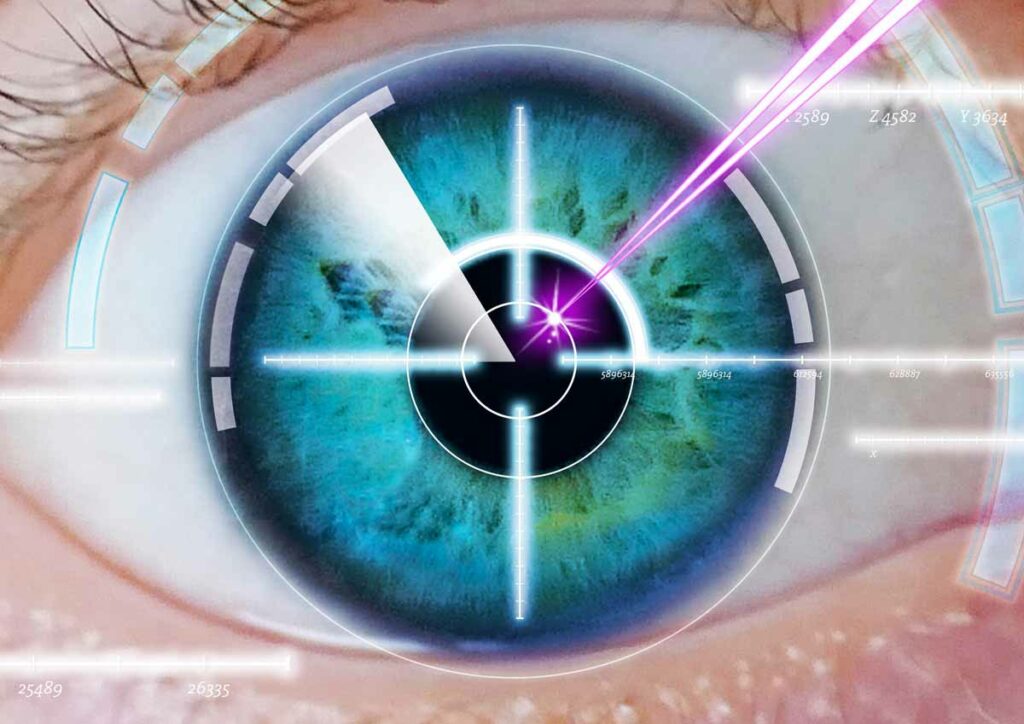If you are one of the millions of people who suffer from cataracts, you may be considering robotic cataract surgery. This is a new surgical procedure that uses robotics to remove the cloudy lens from your eye. In this blog post, we will discuss how robotic cataract surgery works and what you can expect during and after the procedure.
Contents
What is Robotic Cataract Surgery?
 Robotic cataract surgery is a minimally invasive procedure that uses advanced technology to perform precise and efficient eye procedures. It is a type of Femto-cataract surgery, which uses femtosecond laser technology to make tiny incisions in the cornea and lens. This procedure is highly accurate and can reduce potential complications caused by manual cataract surgeries.
Robotic cataract surgery is a minimally invasive procedure that uses advanced technology to perform precise and efficient eye procedures. It is a type of Femto-cataract surgery, which uses femtosecond laser technology to make tiny incisions in the cornea and lens. This procedure is highly accurate and can reduce potential complications caused by manual cataract surgeries.
Many people have benefitted from robotic cataract surgery. The procedure is performed under local anesthesia, which means that patients experience minimal discomfort and don’t require any downtime afterward. Additionally, the automated nature of the procedure allows for a much faster recovery time than that of traditional manual cataract surgeries.
How Does Robotic Cataract Surgery Work?
Robotic cataract surgery is a cutting-edge technology that uses robotic precision and 3D imaging to perform cataract surgeries with greater accuracy and safety. It is a laser-assisted, minimally invasive procedure that requires only a local anesthetic.
During the process, the femtosecond laser machine is docked on the eye, and images are caught by an imaging system attached to it. The incision, opening of the lens capsule, and disintegration of the lens are done robotically. However, it only takes below five minutes.
It is then believed that cataract surgery with robotic precision is more precise than traditional methods, as the laser can reach sub-micron accuracy levels. The incision size determined by the laser can help to reduce trauma and improve postoperative healing while minimizing astigmatism.
Finally, after the cataract has been removed, an intraocular lens (IOL) is implanted into the eye. The procedure requires no cutting or suturing, and generally takes about 15 minutes. The recovery time for robotic cataract surgery tends to be shorter than traditional methods with a more rapid return of vision.
Overall, robotic cataract surgery offers greater precision and safety compared to traditional methods. And that is thanks to its 3D imaging and laser-assisted technology. So, do not forget to discuss with your doctor about this option today!
Who Is A Good Candidate For This Procedure?
 Generally, anyone over 18 years of age who has been diagnosed with cataracts is a good candidate for robotic cataract surgery. And those with a matured cataract that causes significant visual impairment should be the primary candidate for this procedure.
Generally, anyone over 18 years of age who has been diagnosed with cataracts is a good candidate for robotic cataract surgery. And those with a matured cataract that causes significant visual impairment should be the primary candidate for this procedure.
However, individuals should consult with their eye doctor to determine if this procedure is the best option for their particular situation. As this surgery is not suitable for those with a complicated case or with other conditions, such as non-dilating pupil or other vision problems.
Overall, you should consider a physical examination and an accurate evaluation for any eye-related issues before you decide on robotic cataract surgery.
What To Expect With The Surgery?
If you are considering robotic cataract surgery, it is important to know what to expect during the procedure. Generally speaking, the process involves making an incision in the eye and then using a robot-assisted device to perform certain steps of the procedure.
There are several benefits that you can be sure to expect from robotic cataract surgery. These include:
- More precise: One of the main benefits of robotic cataract surgery is its precision. Robotic systems can make very small and precise movements, which greatly reduces the risk of complications during the procedure.
- Faster recovery: The robot-assisted devices used in robotic cataract surgery are extremely accurate and efficient. That means you can expect a much faster recovery time than with traditional cataract surgery.
- Less risk of complications: The accuracy and precision of the robot-assisted devices mean that there is a much lower risk of complications during the procedure, such as infection or excessive bleeding.
- Better vision: This is the obvious and most desired outcome of robotic cataract surgery. With the improved accuracy, you can be sure to expect a much clearer vision after your procedure.
Overall, robotic cataract surgery offers many benefits over traditional methods. And is an ideal choice for those looking to restore their vision quickly and effectively. Many people who have undergone robotic cataract surgery report feeling as if their vision has been restored to an even better level than it was before the procedure.
With that being said, it is still important to talk with your doctor about whether this type of surgery is right for you and discuss any potential risks associated with it.
Are There Any Risks?
Well, there are some risks associated with any surgery, for example:
- Infection
- Bleeding
- Swelling
- Redness
These are very few and can easily be taken care of with the help of your doctor. In fact, here are some of the tips that can help you in minimizing the risks of getting infected during robotic cataract surgery:
- Choose a surgeon who has experience in this kind of procedure.
- Always clean and sterilize the tools used during the procedure.
- Take all prescribed medications as instructed by your doctor.
- Follow any post-operative instructions given by your doctor.
- Avoid rubbing your eyes.
- Do not do heavy activities until your doctor gives you the go-ahead.
- Keep your eyes safe by avoiding exposure to dust, water, and dirt.
These are just some of the preventive measures that can help you in avoiding any complications during robotic cataract surgery. Even though there is a slight risk factor, it does not mean that this procedure is not safe. With proper care and attention, you can make sure that this kind of surgical procedure is beneficial for you. And it will help improve your vision!
Can Cataracts Be Prevented?
 Many of you may be wondering if cataracts can be prevented. Unfortunately, there’s no definitive answer to this question as cataracts are largely caused by the aging process and other conditions such as diabetes and high blood pressure.
Many of you may be wondering if cataracts can be prevented. Unfortunately, there’s no definitive answer to this question as cataracts are largely caused by the aging process and other conditions such as diabetes and high blood pressure.
However, there are a few things that you can do to reduce your risk of developing cataracts or delaying their onset:
- Wearing sunglasses: Some cataracts can form as a result of prolonged exposure to UV radiation. Wearing sunglasses with good UVA and UVB protection can help reduce your risk of developing certain types of cataracts.
- Quit smoking: Smoking has been linked to the development of nuclear cataracts, which tend to progress more quickly than other types. Quitting smoking is a good way to reduce your risk of developing this type of cataract.
- Eating a healthy diet: Eating a balanced diet full of fruits and vegetables can help keep your eyes healthy. Which can in turn lower your risk of developing cataracts. For example, foods rich in antioxidants such as blueberries and spinach have been found to have a positive effect on eye health.
- Control diabetes: Keeping your blood sugar levels in check is an important part of managing diabetes. And controlled diabetes can prevent the development of some types of cataracts.
All in all, these are just a few ways you can reduce your risk of developing cataracts. While there is no surefire way to prevent them, the good news is that there are options available to treat them.
Conclusion
To conclude, robotic cataract surgery may be the future of eye care. This innovative technology offers a safe, precise, and streamlined approach to cataract surgery. That is more comfortable for the patient and less time-consuming for the surgeon. Therefore, if you are considering cataract surgery, ask your doctor if robotic cataract surgery is an option for you.
With its many advantages, it could be the best path for improving your vision and restoring clear sight. Whatever you decide, it’s important to work closely with an experienced ophthalmologist!
Cataract surgery is a safe and painless procedure. At MantraCare we have a team of experienced eye surgeons, who will be happy to answer any questions on cataract surgery. Call us at +91-9711116605 for any inquiries.
